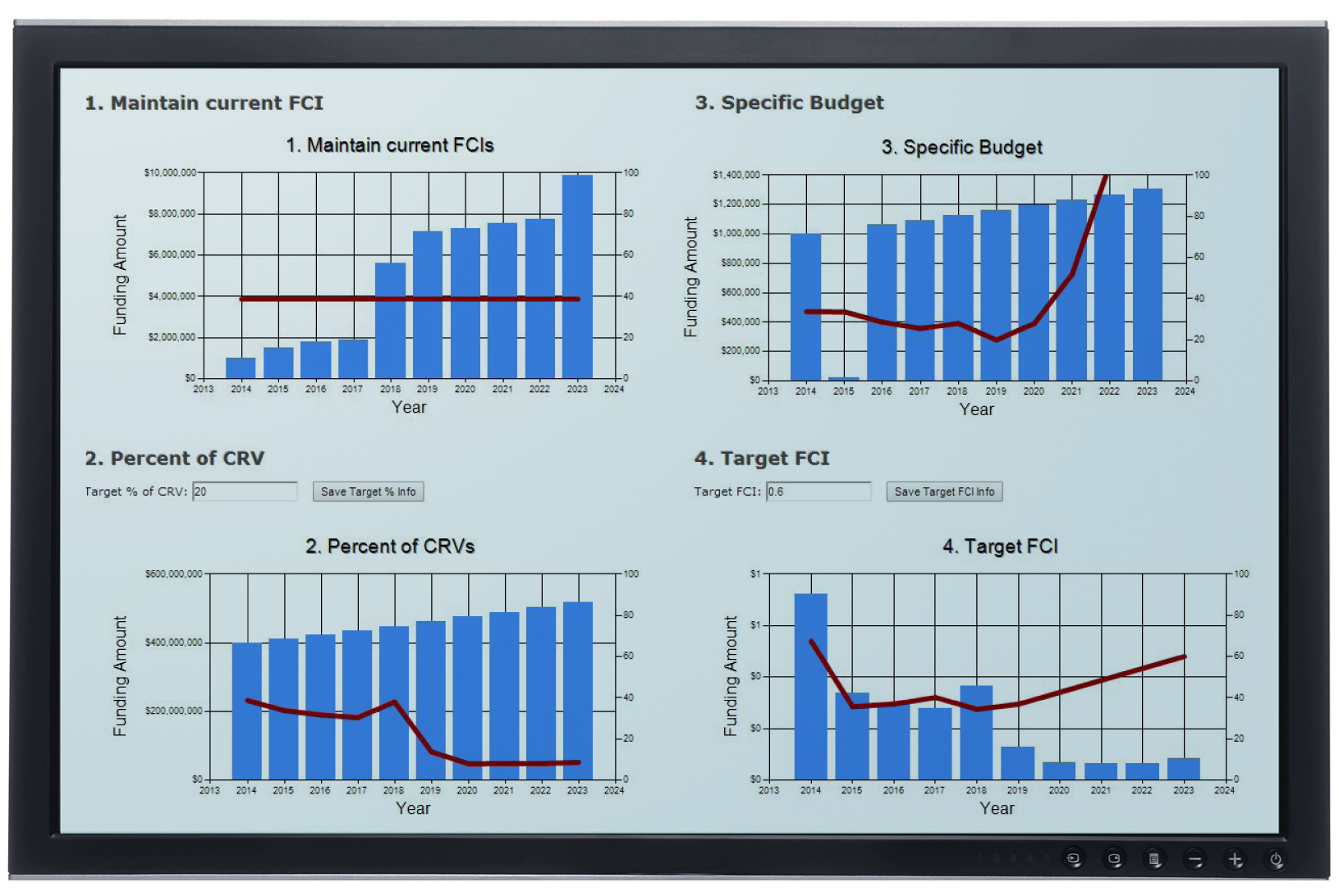CannonDesign Facility Optimization Solutions has released proprietary Facility Condition Assessment (FCA) software focused on empowering organizations to manage existing facility assets and operations more efficiently and effectively.
The FCA software creates a database populated by facility assessment data that becomes a planning tool for organizations, giving them the power to strategically track facilities and development needs while managing repairs and capital projects in a predictable, efficient manner. Specifically, the database:
- Identifies critical failures of components and systems, code and ADA-compliance issues
- Promotes proactive maintenance programs
- Helps budget for capital projects through cost escalation on an annual basis over a five, 10 of 20 year period.
- Systematically justifies prudent expenditures
- Directly corresponds to criteria required by government authorities and client protocols
The FCA software is available to organizations via the cloud across traditional and mobile platforms, serving as a web-based facility assessment tool for assessment, analysis and action. CannonDesign’s team of licensed architects, engineers and cost estimating professionals is capable of executing the assessment to collect the facility data for population. Data collected by the assessment team during the day can be uploaded in the evening, quality checked and available for viewing the next day.
The software is already driving value for a number of organizations including Buffalo Public Schools, University of Illinois and Charlotte County, Florida. For more information about the FCA software and CannonDesign Facility Optimization Solutions visit http://www.cannondesign.com/practice/services/facility-optimization/.
Related Stories
| Sep 22, 2014
Biloxi’s new Maritime and Seafood Industry Museum is like a ship in a bottle
Nine years after the Museum of Maritime and Seafood Industry in Biloxi, Miss., was damaged by Hurricane Katrina’s 30-foot tidal surge, the museum reopened its doors in a brand new, H3-designed building.
| Sep 22, 2014
Swanke-designed Eurasia Tower opens in Moscow
The 72-story tower—the first mixed-use, steel tower in Russia—is located within the new, 30 million-sf, 148-acre Moscow International Business Center.
| Sep 22, 2014
USGBC names 2014 Best of Buildings Award winners
The Best of Building Awards celebrate the year’s best products, projects, organizations and individuals making an impact in green building.
| Sep 20, 2014
Healthcare conversion projects: 5 hard-earned lessons from our experts
Repurposing existing retail and office space is becoming an increasingly popular strategy for hospital systems to expand their reach from the mother ship. Our experts show how to avoid the common mistakes that can sabotage outpatient adaptive-reuse projects.
| Sep 19, 2014
Smithsonian Institution opens LEED Platinum lab facility
The Charles McC. Mathias Laboratory will emit 37% less CO2 than a comparable lab that does not meet LEED-certification standards.
| Sep 19, 2014
8 hot healthcare projects win interior design awards
Winners of IIDA's 2014 Healthcare Interior Design Competition include Perkins+Will, AECOM, Buffalo Design, and SmithGroupJJR, for projects from Cincinnati to Toronto.
| Sep 18, 2014
Final designs unveiled for DC's first elevated park
OMA, Höweler + Yoon, NEXT Architects, and Cooper, Robertson & Partners have just released their preliminary design proposals for what will be known as the 11th Street Bridge Park.
| Sep 17, 2014
Arquitectonica's hairpin-shaped tower breaks ground in Miami
Rising above Biscayne Bay, the 305-meter tower will include three viewing decks, a restaurant, nightclub, and exhibition space.
| Sep 17, 2014
Atlanta Braves break ground on mixed-use ballpark development
SunTrust Park will be constructed by American Builders 2017, a joint venture between Brasfield & Gorrie, Mortenson Construction, Barton Malow Company, and New South Construction.
| Sep 17, 2014
The doctor is in: New consortium to fund research of design's influence on public health
The AIA Design & Health Research Consortium has organized its design and health initiative around six evidence-based approaches.

















